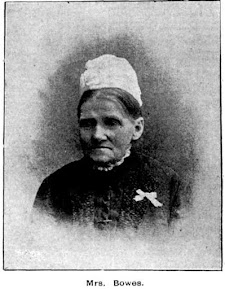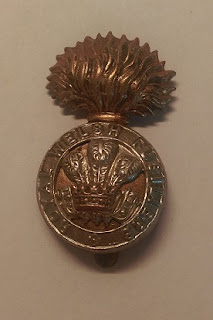A tragedy that did not have to happen
This week is Reconciliation Week and as such I have chosen to highlight the tragic life of a well-known Indigenous man, that resulted in a manhunt, a hanging and the subject of a novel and film.
JIMMY GOVERNOR
Jimmy was born in 1875 on the Talbragar River in the central west of NSW, the son of Sam Governor (or Thomas Grosvenor as he could be known) who was a bullock driver and his wife Annie Fitzgerald. He was educated at a mission school and at Gulgong just north of Mudgee. Jimmy was small in stature, described as good looking and part indigenous with a shock of reddish hair. He became a Police tracker at Cassilis from 1896 for about 18 months. He returned to Gulgong and worked as a wood cutter and a wood roller; in 1898 he married Ethel Mary Jane Page, a young white woman at the Church of England rectory in Gulgong.
In April 1990 after a variety of jobs, Jimmy secured a contract for fencing from John Mawbey near Gilgandra. He was eager to prove himself and was on good terms with his employer, obtaining his rations from Mawbey and even playing cricket with his sons.
Jimmy Governor - Wikipedia
Jimmy and Ethel were soon joined by his brother Joe, and Jacky Underwood, who both helped with the work on the property and were later joined by Jacky Porter and Jimmy's nephew Peter Governor. All claimed rations from Jimmy.
Ethel who did housework on the property, soon grew unhappy and Jimmy was stung by reports that she was being taunted for marrying an indigenous man by Mrs Mawbey and Helen Kerz, a schoolteacher who resided with the Mawbey's.
On the night of the 20th of July 1900 Jimmy and Jacky confronted the women who was alone in the house with Mrs Mawbey's seven children and her sister, Elsie Clarke. Jimmy alleged that the women laughed at him, and Elsie Clarke allegedly said "Pooh......you want shooting for marrying a white woman". Jimmy lost control and he and Jacky attacked the women with nulla nullas and a tomahawk killing Mrs Mawbey, Miss Kerz and three of the children, leaving Miss Clarke with serious injuries.
Examples of nulla nullas - Wikipedia
One of the surviving children raised the alarm and over one hundred constables and twelve trackers led the manhunt. Underwood was captured quickly but Jimmy and Joe Governor calling themselves "bushrangers" went on a fourteen-week rampage, in the central west of NSW, taking revenge on those who had wronged them, killing three adults and a baby boy as well as committing numerous robberies. They moved north to Narrabri and Quirindi and then across to the Manning and Hastings rivers pursued by more black trackers, Police and civilians.
On the 8th of October the Government offered a reward of £1000 each for their capture.
After several close escapes, Jimmy was shot in the mouth by a civilian Herbert Byers, and in a weakened condition was captured by a party of settlers near Wingham on the 27th of October 1900. Joe was shot dead on the 31 October. They had been declared outlaws on the 23rd of October.
Jimmy stood trial on the 22nd-23rd November in Sydney for the murder of Helen Kerz. Defence pleas arguing that as a result of being declared an outlaw he was already condemned and could not be tried for the same crimes. These pleas were rejected, and Jimmy was convicted. An appeal was dismissed, and he spent his final days reading the Bible, singing native songs and blaming his wife.
Jimmy Governor was hanged at Darlinghurst Gaol on the 18th of January 1901 and was buried in an unmarked grave in a part of the Anglican section of Rookwood cemetery that has been allowed to revert to nature. As such there is no photograph available.
Overhead photo of Darlinghurst Court House and Gaol - Wikipedia
Underwood was hanged at Dubbo Gaol four days prior to Jimmy's death.
Jimmy was survived by his wife and son and on the 23rd of November 1901, she married Francis Joseph Brown by whom she had nine more children. She died in Sydney in 1945.
Jimmy Governor's tale in the context of Indigneous displacement and dispossession were the subject of Thomas Keneally's novel "The Chant of Jimmie Blacksmith" which was written in 1972 and later in a film directed by Fred Schepisi in 1978.
It appears that Jimmy had great intentions of pursuing a successful life in a white society but was beaten down emotionally constantly. Being ridiculed by the women of the Mawbey household was the straw that broke the camel's back as they say. Perhaps the idea of being a bushranger seemed convincingly attractive after participating in criminal acts that he knew he would have to pay for in the end. Jimmy appeared to go "all out" to make a stand against years of stifling suppression when all he really wanted in life was a "fair go".
I have drawn upon ancestry.com, Wikipedia and the article in the Australian Dictionary of Biography by G.P. Walsh.
If you have any insights or comments about this blog, please add them below or at the group Facebook site to be found under
Rookwood Cemetery Discoveries
or send me a personal message at
lorainepunch@gmail.com
Until next week






A very interesting and well researched blog.. I wasn’t aware of the connection to the book…
ReplyDeletesuch a sad story
Delete